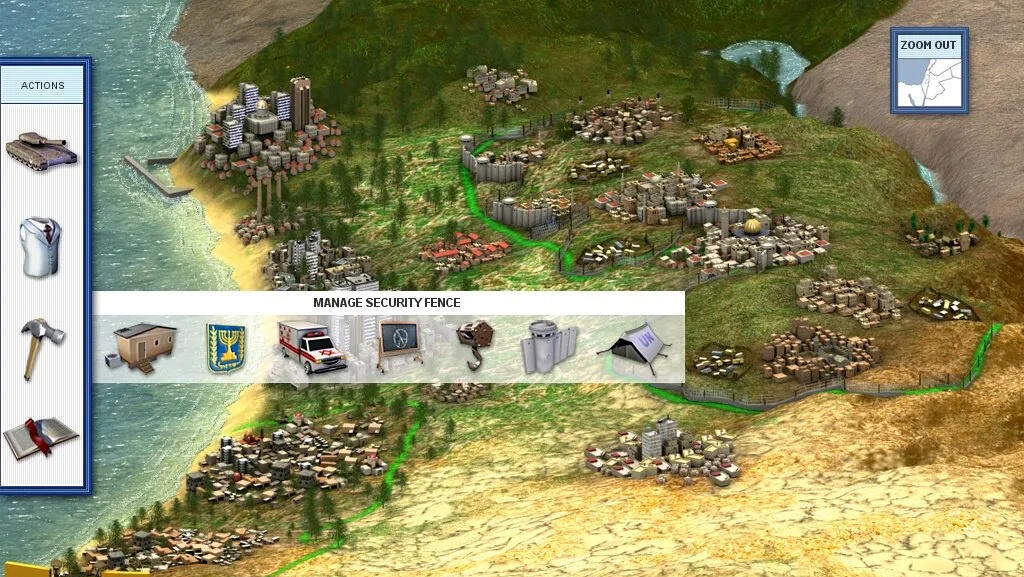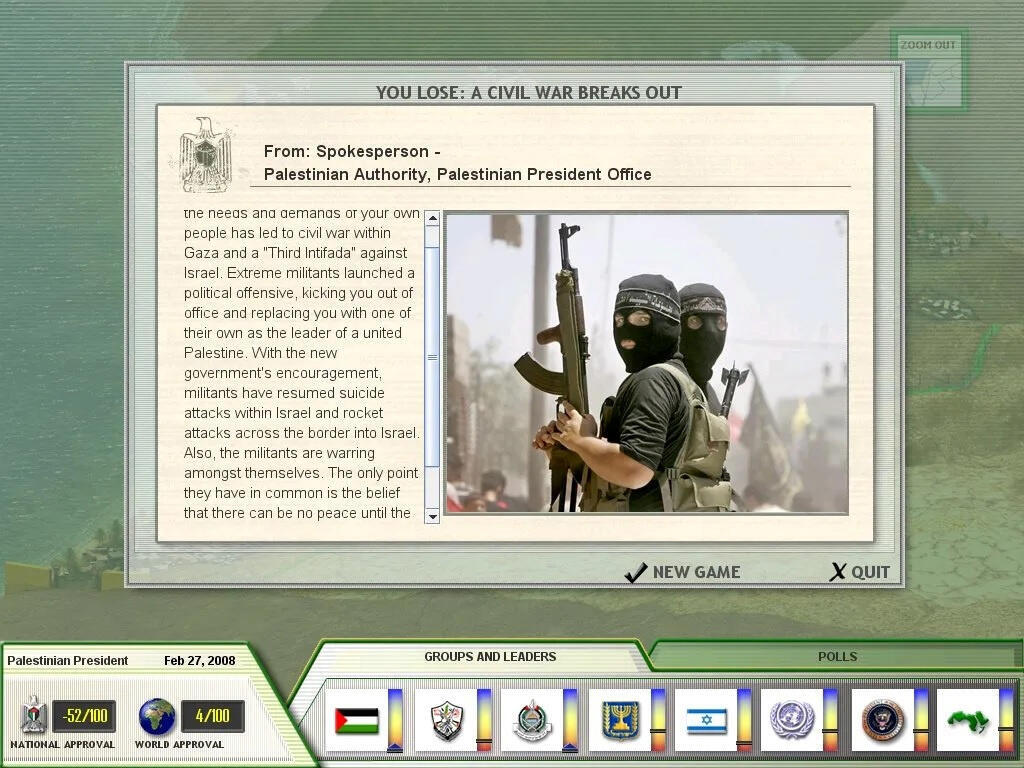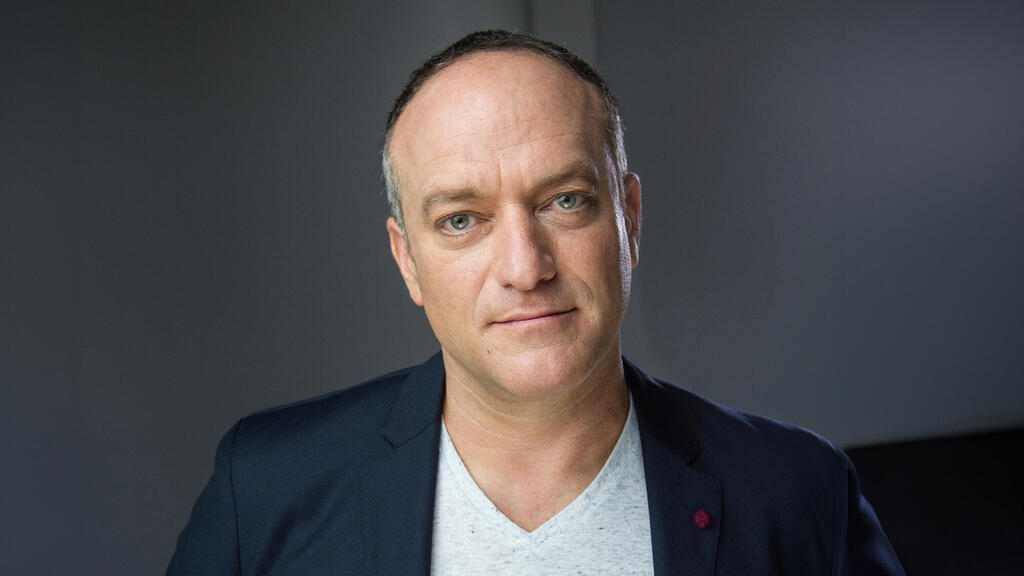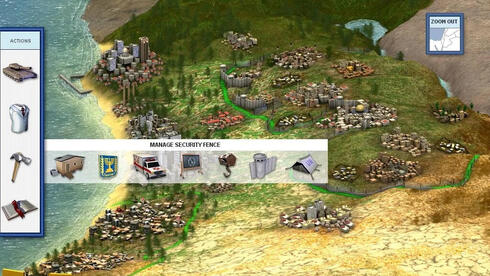
From dystopia to gaming for peace: The eerie prophecy of "Israel 2023"
Asi Burak’s Bezalel thesis resurfaces, inspiring global conversations about peace and social change through video games.
In 1998, a thesis created by a Bezalel student titled "Israel 2023" was presented. It depicted a dystopian museum-like space featuring a large image of Yigal Amir as the President of the State, alongside flags, government symbols, and a news report narrated by broadcaster Micha Friedman. The fictional broadcast described a divided country: Israel and Judah. Amir, still in prison, was declared the president of Judah, while the extreme right-wing "Judah Front" had seized control of the Dimona nuclear reactor, threatening to use it.
This provocative work was created by Asi Burak, a student in Bezalel's Visual Communication Department and now a senior figure in gaming and technology. Over the past year, the project has resurfaced and gone viral due to its eerily prophetic elements. Burak, son of businessman Jacob Burak, currently serves as Chief Business Development Manager at Tilting Point, a global mobile games leader responsible for titles such as Star Trek Timelines, SpongeBob: Krusty Cook-Off, and Cypher 007. Additionally, Burak is the chairman of Games for Change, a nonprofit promoting social change through video games. The organization has collaborated with entities like NASA, the World Bank, and the Clinton Foundation. Through this initiative, Burak has developed impactful games like PeaceMaker, which explores a two-state solution, and Half the Sky, aimed at promoting women's rights in Africa and Asia.
Burak’s book, Games of Peace (originally Power Play: How Video Games Can Save the World), co-authored with journalist Laura Parker, has now been translated into Hebrew. The book advocates for peace and social change through gaming, challenging the traditional image of video games as mere violent or chauvinistic entertainment. It highlights games with the potential to educate, inspire, and foster understanding, from PeaceMaker to titles teaching democratic governance or aiding ADHD treatment.
The book argues that just as games can have negative effects, they can also improve learning, encourage collaboration, and even lead to scientific breakthroughs. "At a historical intersection, you can turn in more than one direction," Burak writes in the introduction. "The world is increasingly filled with people disillusioned by politics and governance. This book is for those who still believe in humanity’s ability to change and endure."
How can video games positively impact the world?
"Like books, theater, or television, video games evolve over time, addressing diverse tastes, emotions, and topics, including politics and social issues," Burak explains. "Some games have proven their ability to drive real-world action, from writing to public officials to solving scientific challenges through collaborative play. For example, some games have even succeeded where traditional scientific methods failed."
Burak (53), who lives in Barcelona with his family, grew up in Herzliya and Tel Aviv. He served as an officer in Unit 8200 before studying at the Bezalel Academy of Arts. "I started drawing as a child, initially clowns and later soldiers and airplanes. My interest in politics grew during my military service, where I focused on network intelligence and studied organizations like Hezbollah and Palestinian groups."
How does this intimate knowledge shape your perspective?
"There’s an intimacy in studying adversaries. You recognize names and strategies. Military service taught me to see things from multiple perspectives, even if they’re my enemies. That approach, unfortunately, is often missing from public discourse today."
Reflecting on the resurgence of his thesis, Burak says:
"I wish I hadn’t been right, but the project foresaw trends following Rabin’s assassination. It represented the conflicting visions for Israel’s future: Rabin’s hope for peace versus a messianic, militant nationalism."
4 View gallery
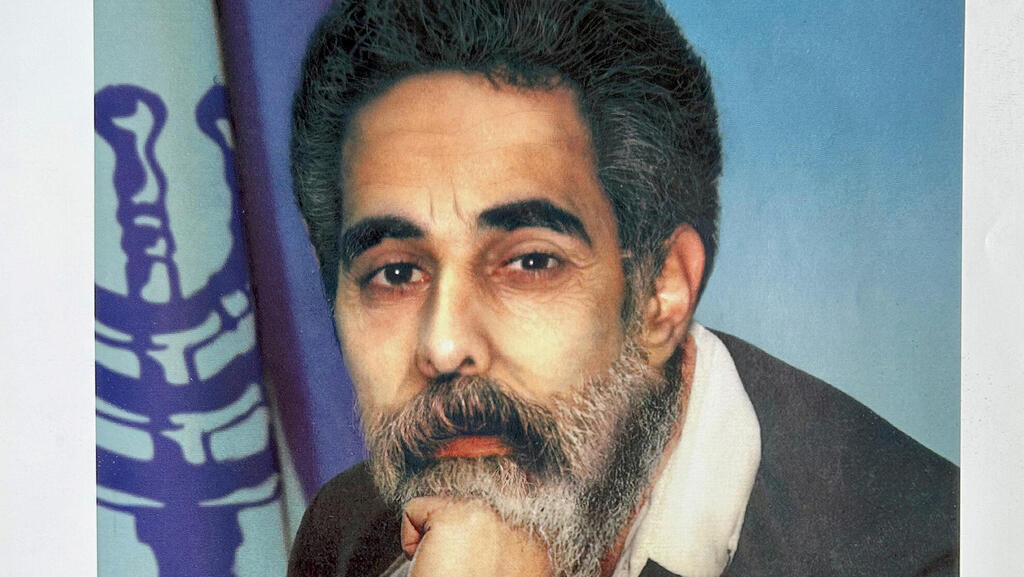

Yigal Amir as the country's president in Asi Burak's thesis at Bezalel
(Photo: Asi Burak)
After Bezalel, Burak worked in advertising and startups before earning a master’s degree at Carnegie Mellon in Entertainment Technologies. "The program combined art and programming, preparing creators for technological mediums like video games."
He used this knowledge to create socially conscious games. "Games like PeaceMaker help players understand the complexities of leadership and conflict resolution. Even seemingly violent games can introduce moral dilemmas. Peace isn’t passive; it’s about navigating crises and decisions. I believe games will increasingly address critical issues like medicine and science as the medium matures."









